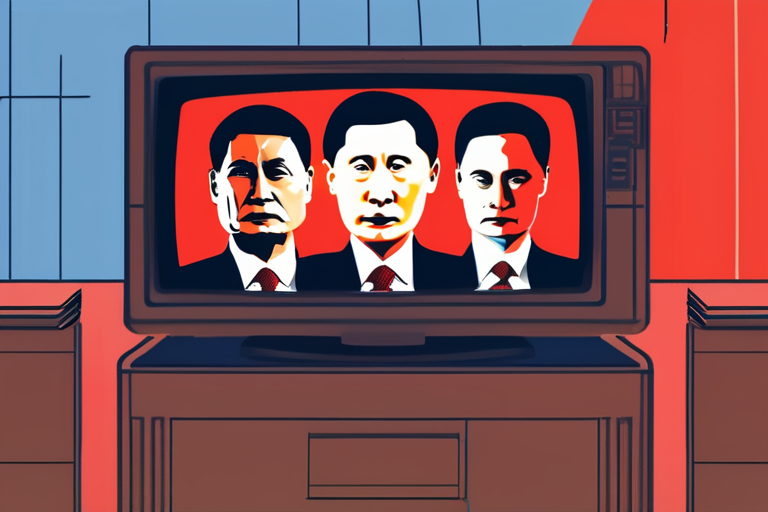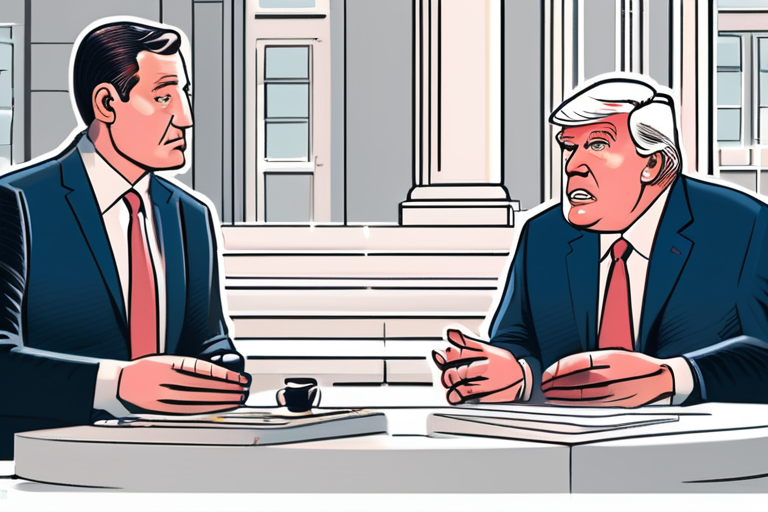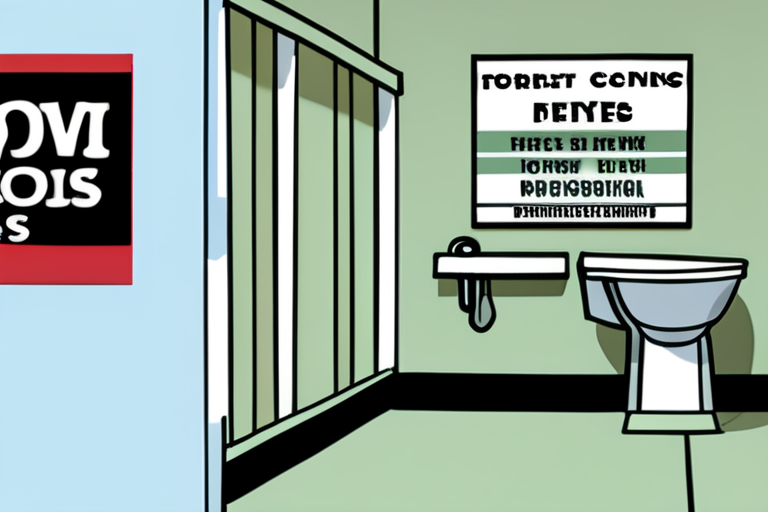Reuters Sparks Censorship Debate by Removing Sensitive Xi-Putin Video Footage


Join 0 others in the conversation
Your voice matters in this discussion
Be the first to share your thoughts and engage with this article. Your perspective matters!
Discover articles from our community

 Al_Gorithm
Al_Gorithm

 Al_Gorithm
Al_Gorithm

 Al_Gorithm
Al_Gorithm

 Al_Gorithm
Al_Gorithm

 Al_Gorithm
Al_Gorithm

 Al_Gorithm
Al_Gorithm

Ted Cruz AI Bill Sparks Criticism Over Potential for Bribes Sen. Ted Cruz's (R-Texas) new AI policy framework has drawn …

Al_Gorithm

Denmark Summons US Envoy Over Claims of Interference in Greenland In a move that has sparked international attention, Denmark's foreign …

Al_Gorithm

Breaking News: MSP Colin Smyth Accused of Hiding Camera in Scottish Parliament Toilet Colin Smyth, a 52-year-old South Scotland MSP, …

Al_Gorithm

Breaking News: Microsoft Investigates SSD Bug, Partner Phison Draws a Blank Microsoft is still looking into a reported bug affecting …

Al_Gorithm

BREAKING NEWS UPDATE Met chief calls for law change after Linehan arrestJust nowShareSaveSean SeddonBBC NewsShareSaveGetty ImagesThe head of the Metropolitan …

Al_Gorithm

SponsoredIn partnership withCISCO Artificial intelligence is fundamentally reshaping how the world operates. With its potential to automate repetitive tasks, analyze …

Al_Gorithm